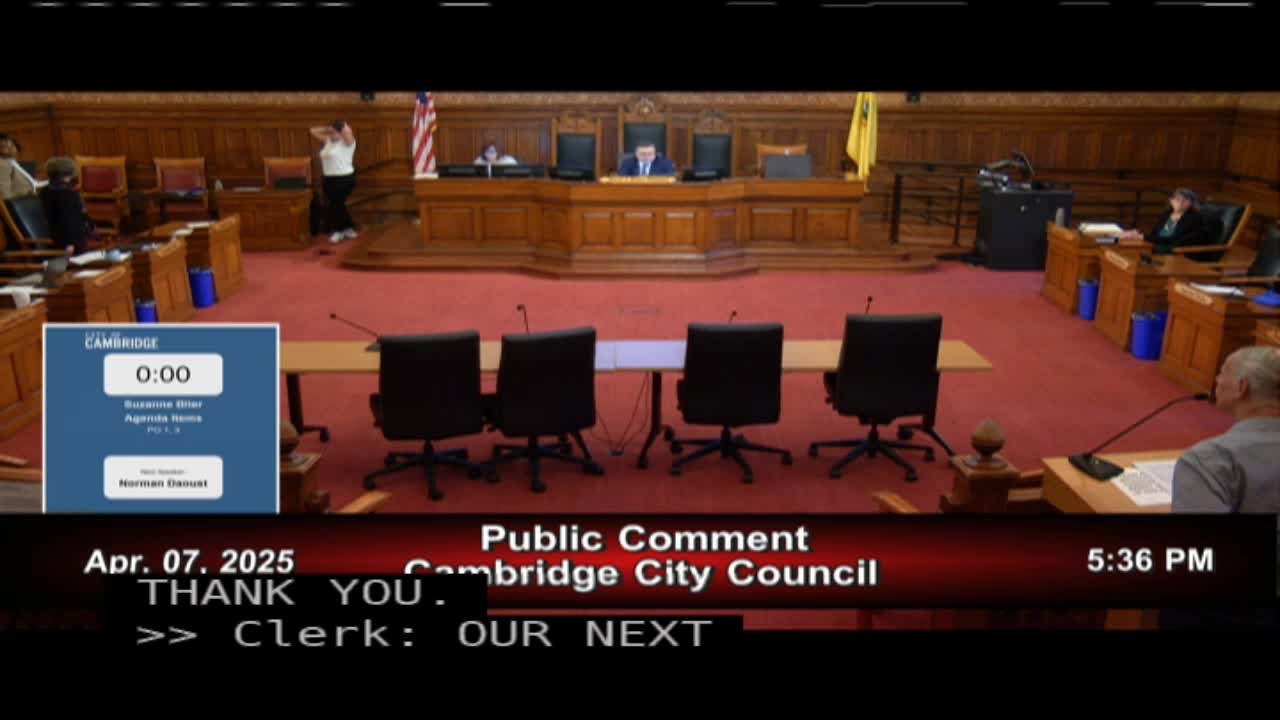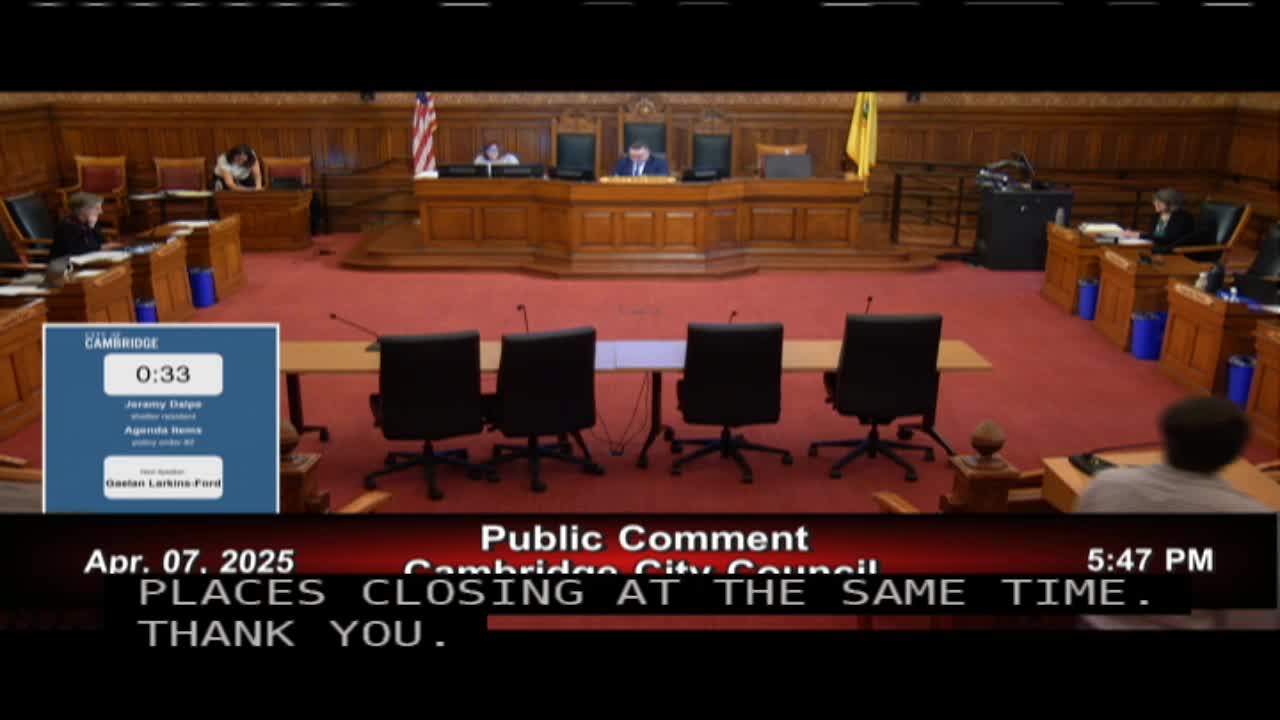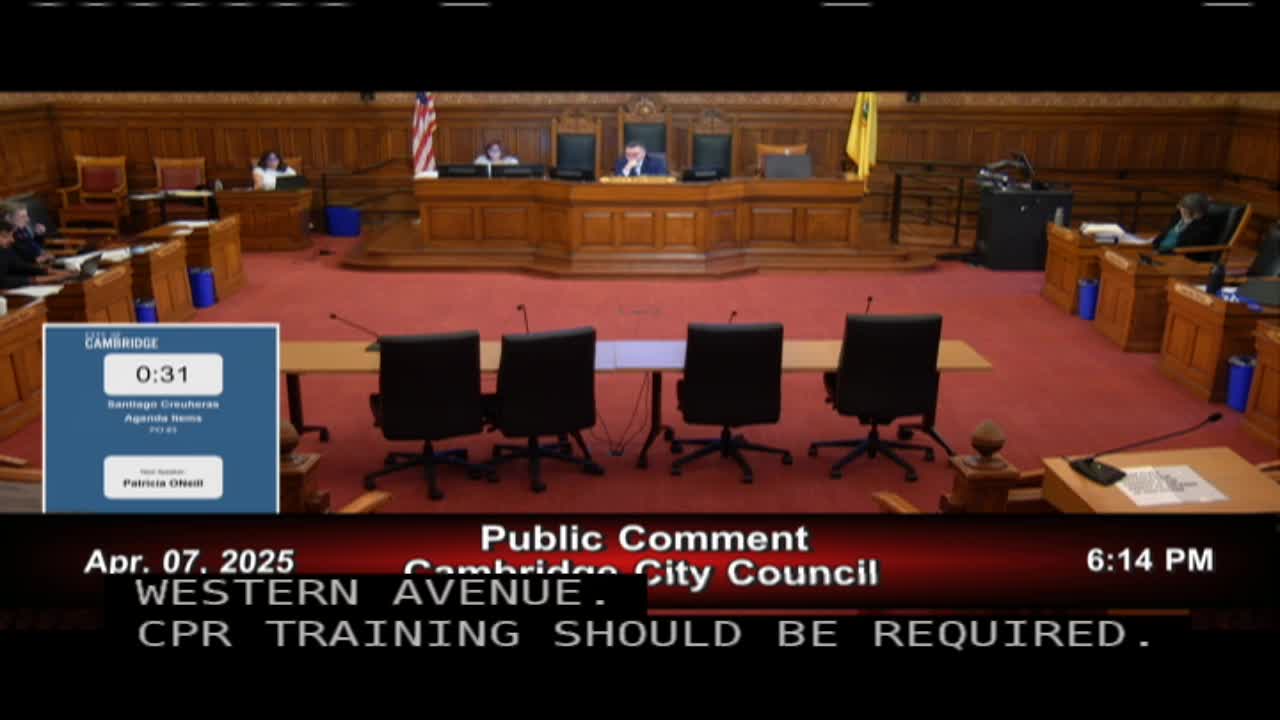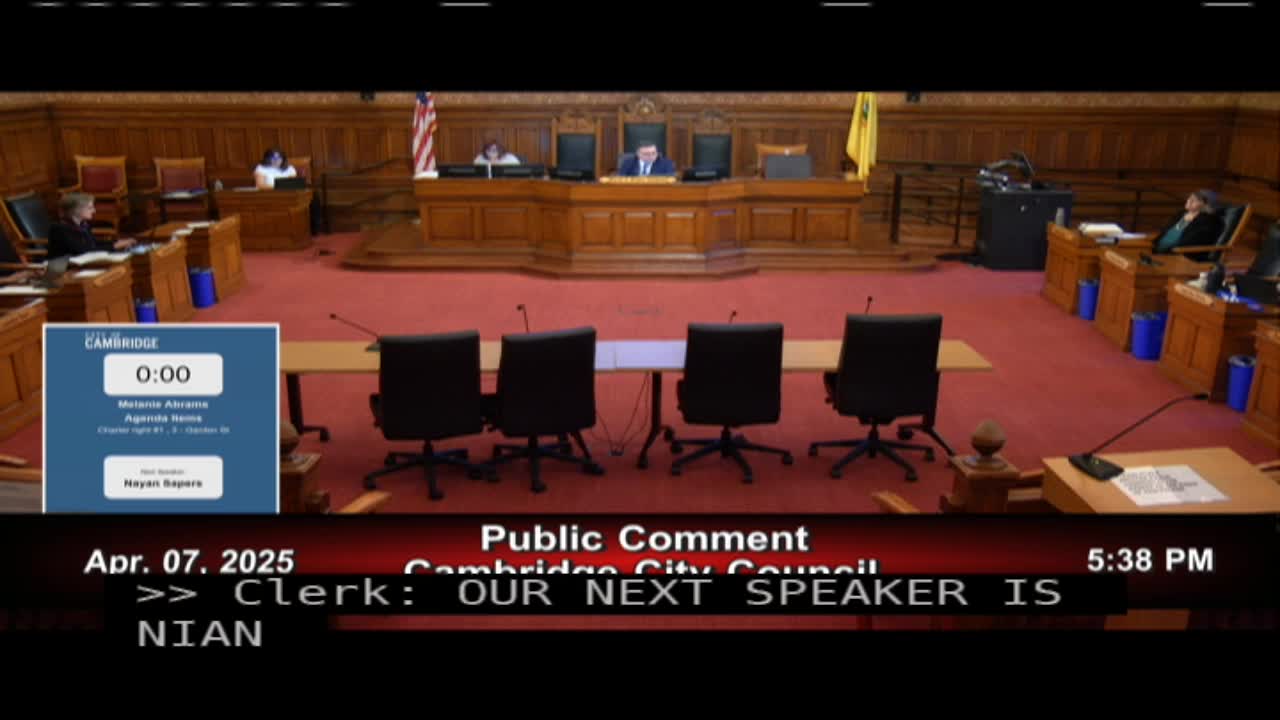Article not found
This article is no longer available. But don't worry—we've gathered other articles that discuss the same topic.

Cambridge Council approves 2‑way Garden Street plan with separated bike lanes

Council pauses vote on Spalding transitional wellness center funding; human services committee to review

Council invites Gerald Chan and other long‑term property owners to discuss Harvard Square Theatre and vacant storefronts

